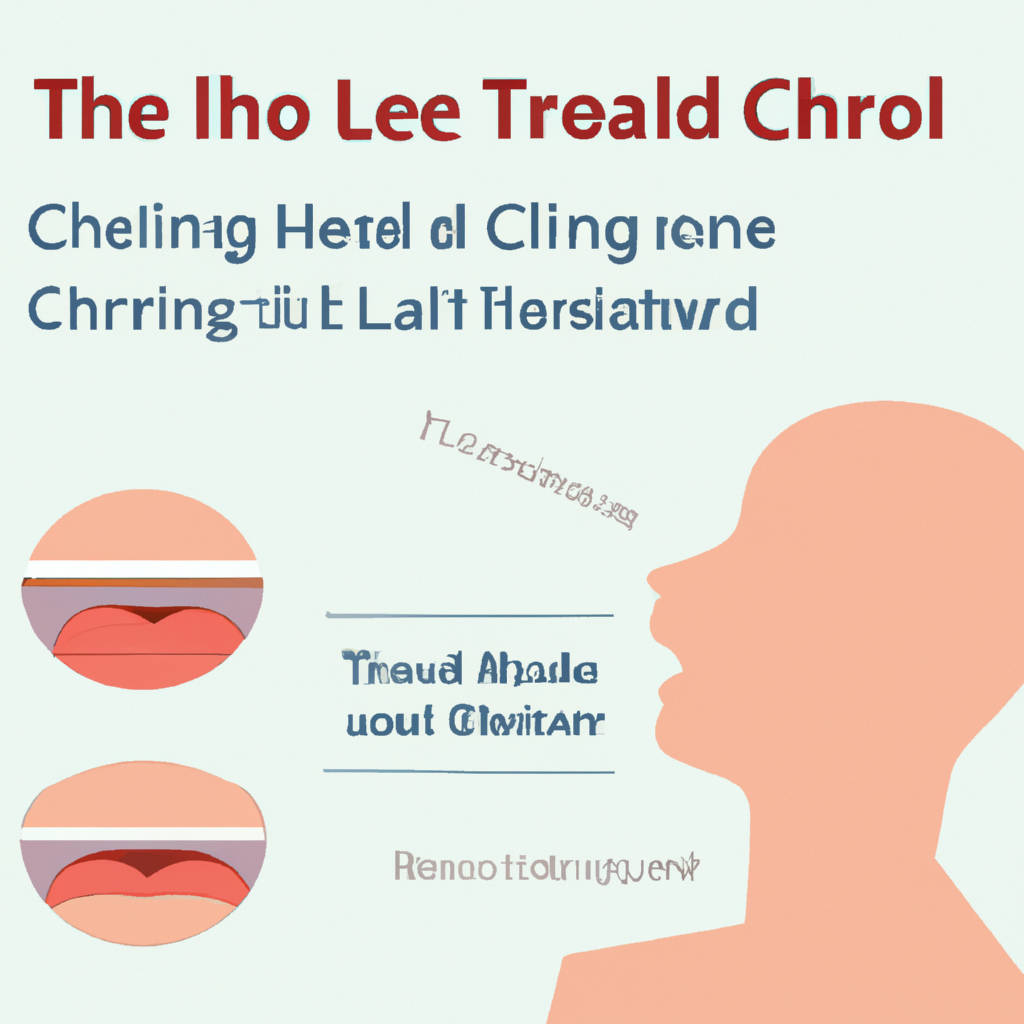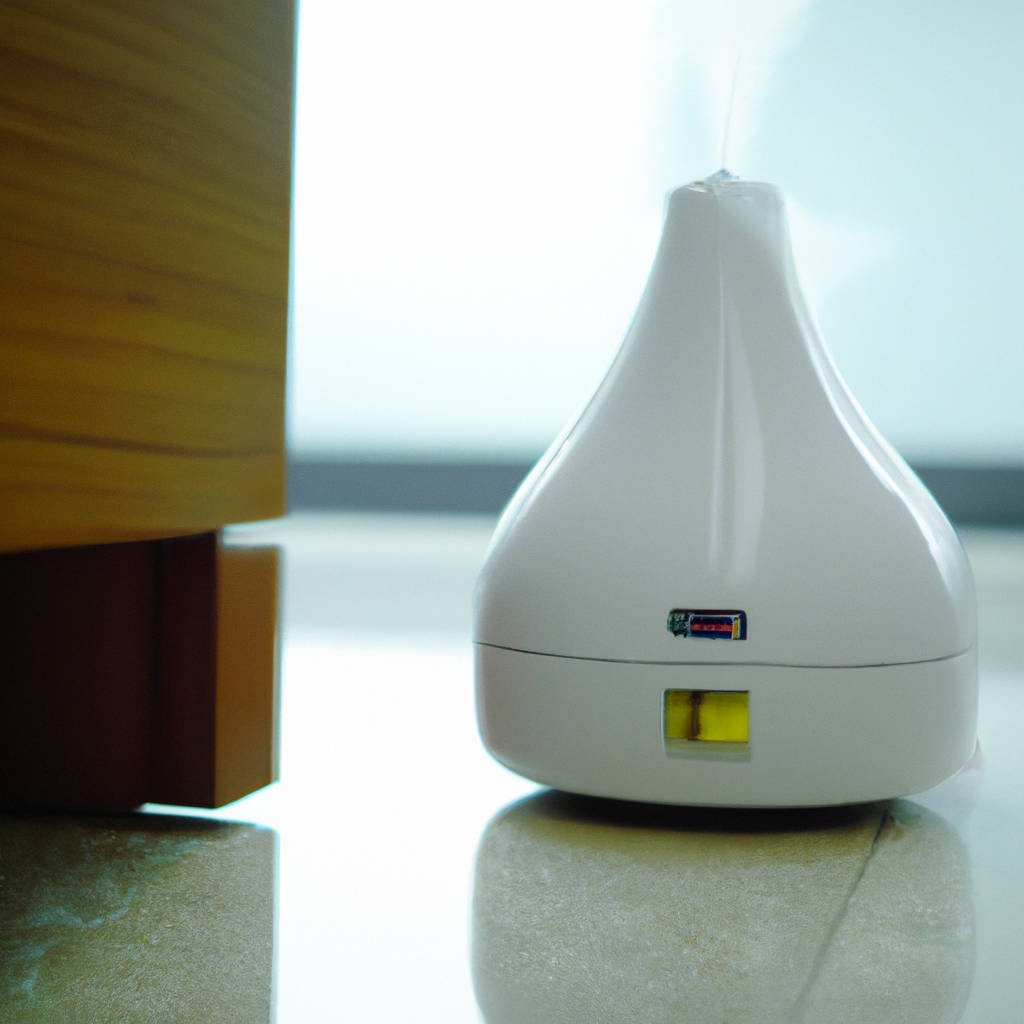Frequent throat clearing can be a habit or a symptom of an underlying medical condition. Here are some tips to help reduce this. Firstly, hydration is key, as a dry throat can provoke the urge to clear it. Regularly drink water throughout the day and consider using a humidifier at home to maintain moisture in your environment. Secondly, diet plays a significant role. Certain foods and drinks, such as dairy products, caffeine, alcohol and spicy foods, can stimulate mucus production, leading to throat clearing.
Identifying and eliminating these triggers can be beneficial. Thirdly, consider behavioral strategies. Sometimes, throat clearing can become a habit. Cognitive-behavioral therapy or speech therapy could help in changing this pattern. Moreover, it’s crucial to manage any underlying health issues such as allergies, acid reflux, or sinus infections, which could be contributing to the problem. Lastly, avoid smoking and exposure to secondhand smoke as it can irritate the throat. Adopting these tips should help in reducing the frequency of throat clearing.

Stay Hydrated: Drink plenty of water throughout the day.
Staying hydrated by drinking plenty of water throughout the day is one of the most crucial aspects of maintaining overall health. Water is vital to the proper functioning of our bodies. It aids in digestion, circulation, absorption, and even excretion. Without a sufficient intake of water, our bodies can experience dehydration, leading to fatigue, headaches, and many other health issues.
Striving to consume an adequate amount of water daily is a beneficial habit for everyone, regardless of age or physical activity level. It is especially essential for those engaged in strenuous physical activities, as water helps to replenish the fluids lost through sweat. Furthermore, drinking water regularly can also have visible effects on our skin, making it appear more radiant and youthful.
However, it can be easy to forget to drink water, particularly when we are consumed with our daily tasks. One way to ensure that we are drinking enough water is by carrying a water bottle with us wherever we go. Having a visual reminder can make a significant difference in our hydration habits. Additionally, there are numerous mobile apps available that send reminders throughout the day to drink water, making it easier to stay on top of our hydration needs.
It’s also important to note that our bodies sometimes confuse thirst for hunger. If you’re feeling hungry shortly after eating, try drinking a glass of water before reaching for a snack. You might find that it was actually water that your body needed. Lastly, remember that while other beverages like coffee, tea, and soft drinks do contribute to your daily fluid intake, they can’t replace the benefits of drinking pure water.
Maintaining optimal hydration is not merely about drinking when thirsty, but rather making a conscious effort to drink water consistently throughout the day. By doing so, we can support our bodies in functioning at their best, promoting better health and well-being. So make sure to reach for that glass of water and remember, your body will thank you!
Avoid Irritants: Steer clear of smoke, strong odors, and allergens.
Maintaining a healthy lifestyle involves taking proactive steps not only regarding what we consume, but also concerning what we inhale. Substances like smoke, strong odors, and allergens can have an extremely negative impact on our health, particularly on our respiratory system. Inhaling smoke, for instance, can result in numerous respiratory diseases, including chronic obstructive pulmonary disease (COPD) and lung cancer. It’s not just first-hand smoke that poses a threat; second-hand smoke can be equally damaging, affecting non-smokers who are often in the vicinity of smokers.
Similarly, strong odors from chemicals, perfumes, cleaning supplies, paint, and other substances can cause issues ranging from mild discomfort to severe health problems. These odors can trigger headaches, nausea, and even asthma attacks in some individuals. It is crucial to understand that these reactions are not just about disliking a particular smell; they signify the adverse effects these substances can have on our health.
Allergens are another category of irritants that should be avoided. These include substances such as dust, pollen, pet dander, mold, and certain foods that can trigger allergic reactions. These reactions can vary from mild, such as sneezing and itching, to severe ones like difficulty breathing and anaphylaxis, which can be life-threatening.
Therefore, it is crucial to be mindful of the environment we live in and the air we breathe. Consider implementing strategies such as maintaining clean living spaces, using natural products with no or minimal chemical additives, and avoiding smoke-filled environments. If you are prone to allergies, be aware of your triggers and take necessary precautions, which might include wearing a mask during high pollen seasons or keeping your home free of dust and mold. It is also advisable to seek professional medical advice if you frequently experience discomfort or symptoms related to exposure to these irritants. Remember, taking care of your respiratory health is an integral part of overall well-being.

Practice Relaxation: Try techniques like deep breathing to calm throat irritation.
Relaxation practices are highly beneficial for alleviating throat irritation. One such technique is deep breathing which has been proven to be an effective method of calming throat discomfort. Deep breathing involves taking slow, long breaths in through your nose, holding it momentarily, and then exhaling slowly through your mouth. This simple yet effective technique aids in reducing tension and stress, which are common triggers for throat irritations.
Moreover, deep breathing exercises also improve the body’s oxygen supply which is essential for healing. The increase in oxygen levels helps to soo good throat irritation and inflammation, promoting faster healing. This exercise is also known to enhance overall well-being and improve mental clarity, making it a beneficial practice for both physical and mental health.
In addition to deep breathing, other relaxation techniques such as mindfulness meditation and progressive muscle relaxation can also alleviate throat discomfort. Mindfulness meditation involves focusing on your breath and acknowledging your thoughts and feelings without judgment, which can help reduce stress levels and soothe throat irritation. On the other hand, progressive muscle relaxation involves tensing and then relaxing each muscle group, which can help ease tension in the throat muscles.
Remember, consistency is key when it comes to relaxation practices. Incorporating these techniques into your daily routine can help manage throat irritation and improve overall health. It is also recommended to seek advice from a healthcare professional if throat irritation persists or worsens, as this could be a sign of a more serious condition. In conclusion, relaxation techniques such as deep breathing can be an effective, natural and safe tool for managing throat discomfort.
Humidify the Air: Use a humidifier to keep indoor air moist.
Maintaining optimal humidity levels in indoor environments can significantly enhance the quality of life, particularly during periods of extreme weather. When the air becomes excessively dry, a humidifier can be an effective solution to restore moisture levels. This device works by emitting water vapor or steam to increase the humidity levels, thus making the indoor environment more comfortable.
During winter, the air can become extremely dry due to the use of heating systems that strip the moisture from the air. This can lead to a variety of health issues such as dry skin, irritated nasal passages, and aggravated respiratory conditions. By using a humidifier, moisture is reintroduced into the air, mitigating these health issues and enhancing overall comfort.
Similarly, in arid climates where the air is naturally dry, a humidifier can help maintain a healthier indoor environment. Not only does this device assist in reducing the aforementioned health issues, it additionally helps to prolong the life of wooden furniture and flooring, which can crack and warp in dry conditions.
There are various types of humidifiers available in the market, such as central humidifiers, evaporators, and ultrasonic humidifiers, each serving different needs and covering different room sizes. While deciding the most suitable humidifier for your needs, it’s essential to consider factors like the size of the space you want to humidify, the noise level of the device, and the ease of cleaning and maintenance.
It’s crucial to note, however, that excessively humid environments can foster the growth of mold, bacteria, and dust mites. Therefore, it’s important to maintain a balanced humidity level, usually between 30% to 50%. Several humidifiers come with built-in hygrometers or humidistats that measure and regulate the humidity level, ensuring it stays within the desired range.
In conclusion, a humidifier can be a valuable addition to your home or office, especially in dry climates or during cold weather. By maintaining optimal humidity levels, it can contribute to a healthier and more comfortable indoor environment.

Throat Lozenges: Use lozenges or hard candies to soothe irritation.
Throat lozenges and hard candies serve as effective solutions to alleviate throat discomfort, especially during cold, dry seasons or periods of illness. These small, often medicated tablets are typically dissolved slowly in the mouth to lubricate and soothe irritated tissues of the throat. They are available in a variety of flavors and consistencies, providing temporary relief from symptoms such as dryness, soreness, and cough.
Hard candies can also serve a similar purpose, particularly when medicated lozenges are not available. Like lozenges, they stimulate saliva production, which can help keep the throat moist and reduce discomfort. Moreover, some hard candies also contain ingredients like honey, mint, or lemon, which can provide additional soothing effects.
It is important to use these remedies appropriately, considering their potential side effects. For instance, excessive use of certain types of lozenges can lead to stomach upset or other digestive issues. Similarly, hard candies, especially those high in sugar, can contribute to oral health problems if consumed excessively. Therefore, while they are beneficial in providing temporary relief, they should not be used as a long-term solution for chronic throat problems.
If throat irritation persists despite the use of lozenges and hard candies, it may indicate a more serious underlying condition, such as strep throat or tonsillitis. In such cases, it is crucial to seek medical attention promptly. A healthcare professional can provide a proper diagnosis and recommend appropriate treatment strategies.
In conclusion, throat lozenges and hard candies can effectively soothe throat irritation and provide temporary relief from discomfort. However, they should be used judiciously, and persistent throat problems should be evaluated by a healthcare professional.
Check for Reflux: Address any acid reflux issues that might contribute to throat clearing.
Addressing acid reflux issues can significantly reduce throat clearing. Acid reflux, medically known as gastroesophageal reflux disease (GERD), is a condition in which stomach acid frequently flows back into the esophagus, causing irritation. This backwash of acid can irritate your throat and cause a sensation of a lump or discomfort, leading to frequent throat clearing. Therefore, it is crucial to manage this condition effectively to alleviate throat discomfort.
One way to manage acid reflux is through dietary changes. Certain foods and drinks, such as coffee, alcohol, chocolate, and fatty or fried foods, can relax the lower esophageal sphincter, allowing stomach acid to flow back into the esophagus. Avoiding these trigger foods can help control the symptoms of acid reflux.
Additionally, lifestyle modifications can make a big difference. These include maintaining a healthy weight, as excess pounds can put pressure on the abdomen, pushing stomach acid into the esophagus. Also, it is advised not to lie down immediately after eating and to elevate the head while sleeping, reducing the chance of acid flowing back into the esophagus.
Over-the-counter medications are also available for treating acid reflux. These include antacids, which neutralize stomach acid, and medications that reduce or block acid production. Proton pump inhibitors are particularly effective as they block acid production and heal the esophagus. However, these should be used under the supervision of a healthcare professional, as they can have side effects.
Finally, in severe cases of acid reflux that don’t respond to other treatments, surgery might be an option. A procedure called fundoplication can help strengthen the lower esophageal sphincter, preventing acid from backing up into the esophagus.
In conclusion, addressing acid reflux issues is an essential part of reducing throat clearing. Through dietary changes, lifestyle modifications, medications, or even surgery, it is possible to manage this condition and improve throat health.